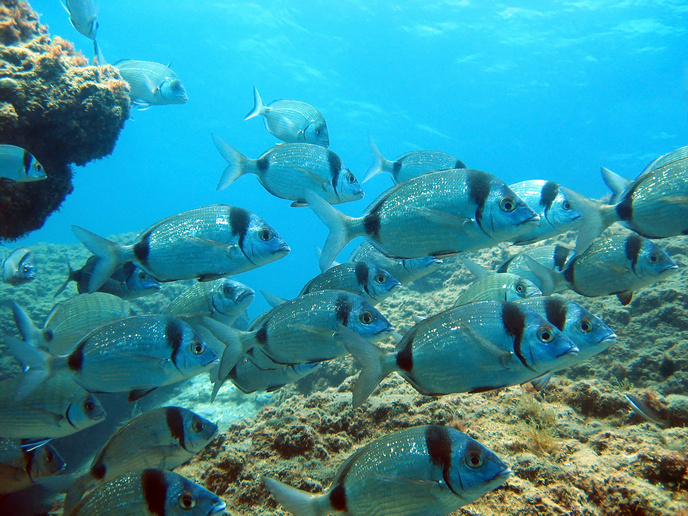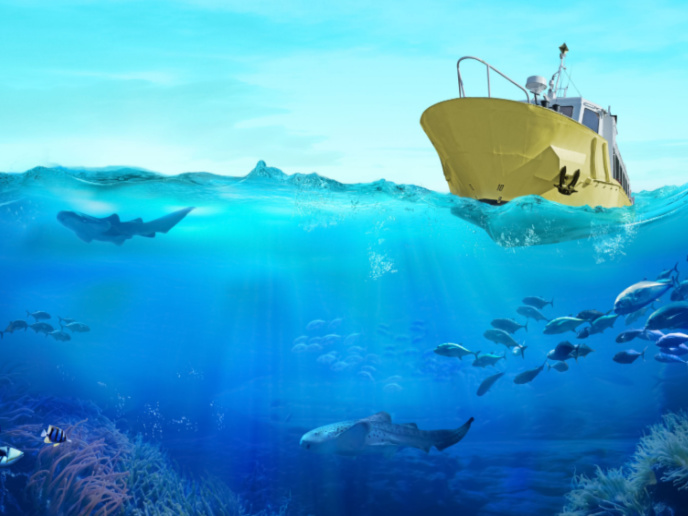How digital tools help balance marine conservation and food security
Balancing food security with marine conservation remains a global challenge. Overfishing, habitat degradation, and climate change are putting increasing pressure on marine ecosystems. This makes it crucial to adopt ecosystem-based fisheries management (EBFM), a comprehensive strategy that integrates ecological, economic, and social aspects of fisheries along with oceanographic, environmental and climatic drivers. Enter the EcoScope project, a collaborative effort involving 24 partners from academia, research, NGO, and SMEs, developing cutting-edge digital tools to promote and advance EBFM. “Assessing the human impact on organisms, habitats, and ecosystems; tracking fisheries and stock trends; and evaluating ecosystem health using novel indicators and technologies – all key outputs of EcoScope – are prerequisites for effective ecocentric fisheries management,” states Athanassios Tsikliras, EcoScope project coordinator.
Harnessing data for smarter fisheries management
To provide scientists, policymakers, and stakeholders with the resources needed to make informed, sustainable decisions, the project has developed four practical solutions. EcoScope’s interoperable platform has organised and standardised climatic, oceanographic, biogeochemical, biological, and fisheries data across European seas. Users can access these datasets in real time through interactive mapping layers, allowing them to visualise multiple data points simultaneously, such as fleet activity, fish distribution, and ecosystem productivity. The EcoScope toolbox is a decision-support system that evaluates fisheries management scenarios using ecosystem models, socio-economic indicators, and assessment tools. It provides a comprehensive scoring system, helping decision-makers assess the combined impacts of various management strategies. Another key output is EcoScope’s academy, the educational pillar of the project. To equip scientists, students, policymakers, and other stakeholders with the knowledge needed for ecocentric fisheries management, it offers online and hybrid courses, webinars, and online games. The fourth solution is the Ecoscope app, a mobile application that enables citizens to report environmental hazards, removal or stranding of protected species, and marine pollution. Reports are submitted online to local management authorities or port police, fostering community involvement and improving cooperation with authorities.
Supporting fisheries management in data-poor regions
The project has also pioneered novel assessment methods for fisheries in data-poor areas, which have historically been excluded from EBFM programmes due to a lack of data. “In addition to the wide number of data-deficient areas across the world’s oceans, stocks that are of no commercial value have generally been overlooked in assessments,” says Tsikliras. The CMSY++ method assesses commercial stocks using only historical catch data. AMSY, a newly developed method, evaluates non-commercial species based on abundance trends derived from scientific surveys, using catch-per-unit-effort (CPUE) or biomass estimates. Together, these innovations provide a more complete picture of marine ecosystem health.
Engaging policymakers and stakeholders
Policymakers, advisory bodies, and other stakeholders have played a pivotal role in the project. Two foresight workshops gathered input from key stakeholders, including representatives from the European Commission, regional fisheries management organisations, environmental NGOs, and scientific associations. These workshops helped refine EcoScope’s research and outcomes. “Our approach can hopefully lead to a shift towards the perception that ecocentric fisheries management, albeit demanding and challenging, is a necessary and feasible option that will aid in restoring the sustainability of fisheries and ensure balance between food security and healthy seas,” adds Tsikliras.
Keywords
EcoScope, EBFM, ecocentric fisheries management, food security, ecosystem-based fisheries management, climate change, marine conservation







